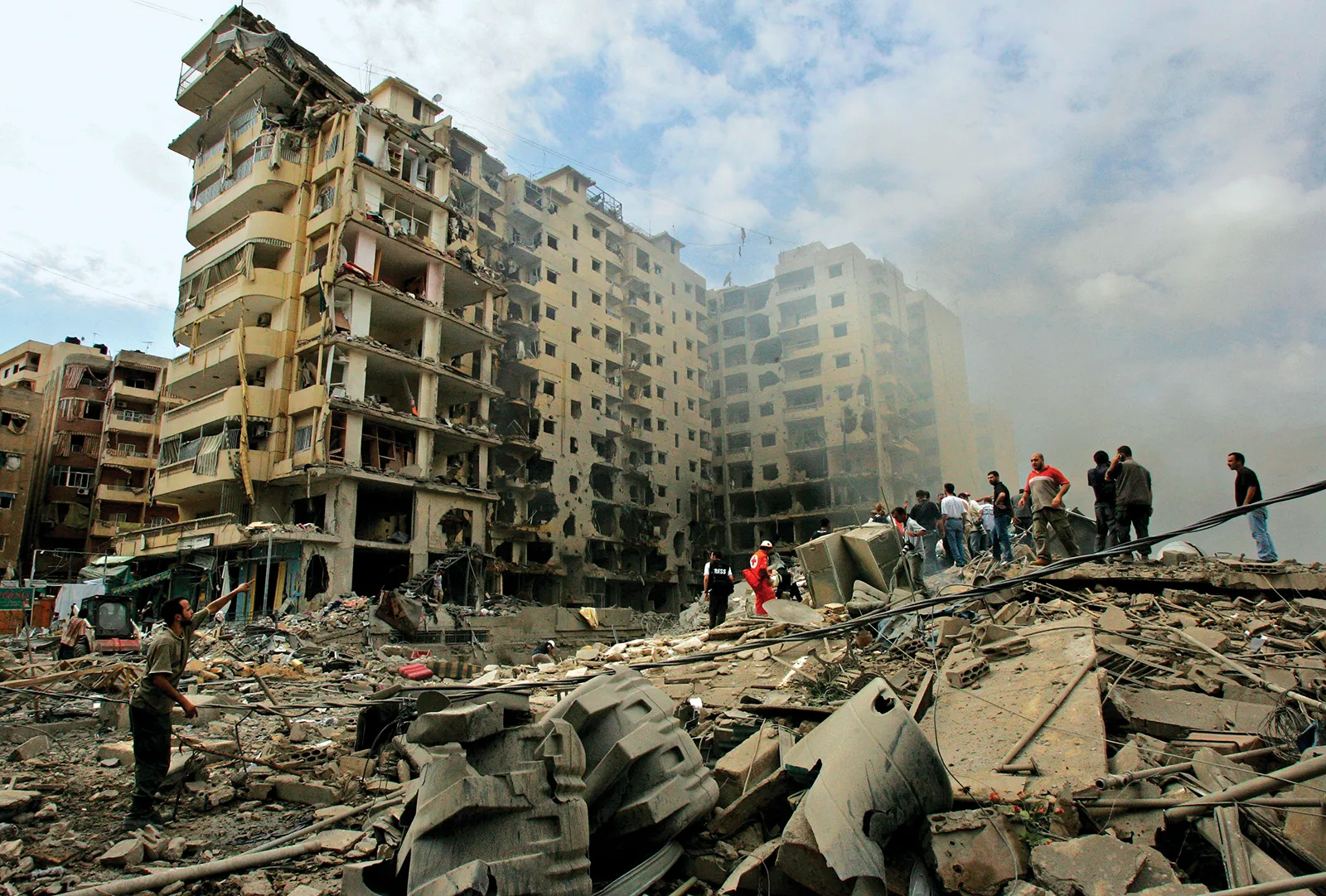The intensification of violence between Israel and Hezbollah is at its root a contest of wills between Israel and Iran. Tehran wants to impose a new strategic reality on Israel by establishing military linkage and potential interdependence between the battlefields of Gaza, Iraq, Syria, Lebanon, and Yemen. Israel is countering Iran’s plan through brute force. The result has been strategic failure on both sides, along with tens of thousands of innocent people killed and immense human displacement and physical destruction.
Although armed groups loyal to Tehran have attacked Israel from Iraq and Yemen, the two main areas of confrontation are Gaza and Lebanon, where Israel is fighting Hamas and Hezbollah, respectively. The first real application of Iran’s new military doctrine was Hezbollah’s campaign against Israel, which it launched on 8 October, a day after Hamas invaded southern Israel and massacred 1,200 people.
Hezbollah said then, and continues to say, that its attacks against Israel are in support of Hamas, following the Israeli offensive in Gaza in retaliation for the group’s 7 October operation.
So far, there is no clear winner, and there probably won’t be. Hamas’ military capacity is decimated, and Hezbollah has suffered losses like never before in its 42-year conflict with the Jewish state. Yet despite its tactical successes, Israel is nowhere near achieving strategic gains. Its northern region is almost entirely depopulated, its international reputation is in tatters for the killing and suffering of so many civilians, its economy is in serious trouble, and its domestic politics is in turmoil.
Absent a diplomatic strategy, continuing to pummel Hamas and Hezbollah—while politically useful for Israeli Prime Minister Benjamin Netanyahu—will not address any of Israel’s above-mentioned challenges. On the contrary, Israel’s reliance on the military instrument alone, as it is prone to do, will not make it safer. Decades, not just years, of confrontation with these resilient and determined armed groups can attest to that.

Miscalculations that could lead to all-out war
It is reasonable to argue that Israel is trying to weaken both Hamas and Hezbollah as much as possible before it entertains diplomacy. In theory, that’s a sound approach and a classic dictum in war and international relations: you simply don’t negotiate with a weak hand. However, in this case, Israel is overplaying its hand.
We are unlikely to see US leadership or serious diplomatic involvement before the presidential elections in November are over.
By refusing to reach a ceasefire in Gaza, which is the key to stopping the escalating fight with Hezbollah, it is dragging the region to an all-out war.
Why Netanyahu continues to reject a ceasefire in Gaza is no mystery. His own political survival depends on maintaining this state of war, even if it leads to catastrophe. He knows, and is manipulating the fact, that Israeli society will not remove their leader while the country is in danger.
US leverage
Even the United States, Israel’s closest friend, has publicly expressed its frustration with Netanyahu’s lack of cooperation. Of course, the situation may be different if Washington did more than show bewilderment and annoyance every time Israeli action in Gaza causes further death and destruction.
It is not that difficult: the Israeli war machine cannot continue without US military assistance, so America could choose to exercise its significant leverage over the Jewish state to force it to exchange military action for diplomatic engagement. But we are unlikely to see US leadership or serious diplomatic involvement before the presidential elections in November are over.
Hezbollah will fight for survival
Iran cannot feel that its new plan of encircling Israel with regional fires is proving a success. Its Palestinian ally Hamas has suffered a major blow from which it will take years to recover. Hezbollah, its ace in the hole, has lost the majority of its military leaders and the remaining ones are afraid of meeting or even communicating without getting blown up by Israeli technology or air strikes.
It would be a huge mistake to assume that Hezbollah is now helpless, or that it will fold because of Israeli hits.
Never has the mighty Hezbollah appeared this fragile and disoriented. But it would be a huge mistake to assume that Hezbollah is now helpless, or that it will fold because of Israeli hits. That’s just not its philosophy. Even Israel has admitted that the group still has significant military capabilities. The harm it is capable of inflicting on Israel could still be devastating. Its precise missiles can strike any strategic facility or urban centre in Israel.
Of course, Hezbollah can’t so easily escalate and start regularly hitting Tel Aviv, nuclear reactors, or petrochemical plants. The group’s main responsibility, after liberating Lebanon from Israeli occupation in 2000, is to deter an Israeli attack against Iran’s nuclear infrastructure. Ironically, that is a function in which Israel takes comfort. It knows that the group’s actions are constrained not of its own volition, but by Iranian calculations.
Israel must now face this dilemma: if it continues to escalate its attacks against Hezbollah, and the group starts to feel like its own existence is at risk, it will likely lash out in ways that Israel has never seen before, regardless of Iranian interests. After all, how relevant is Hezbollah’s strategic deterrent if Hezbollah itself no longer exists or is rendered militarily irrelevant? The first deterrent Hezbollah must establish is against a fatal Israeli campaign, not an Israeli strike against Iran’s nuclear sites.
Lessons learned?
Israel is currently drunk on its own tactical successes, assuming it can do to Hezbollah what it has done to Hamas. But Hezbollah is a very different kettle of fish. If really cornered, it will use new and deadly weapons and tactics to survive—weapons and tactics Hamas wished it had.










